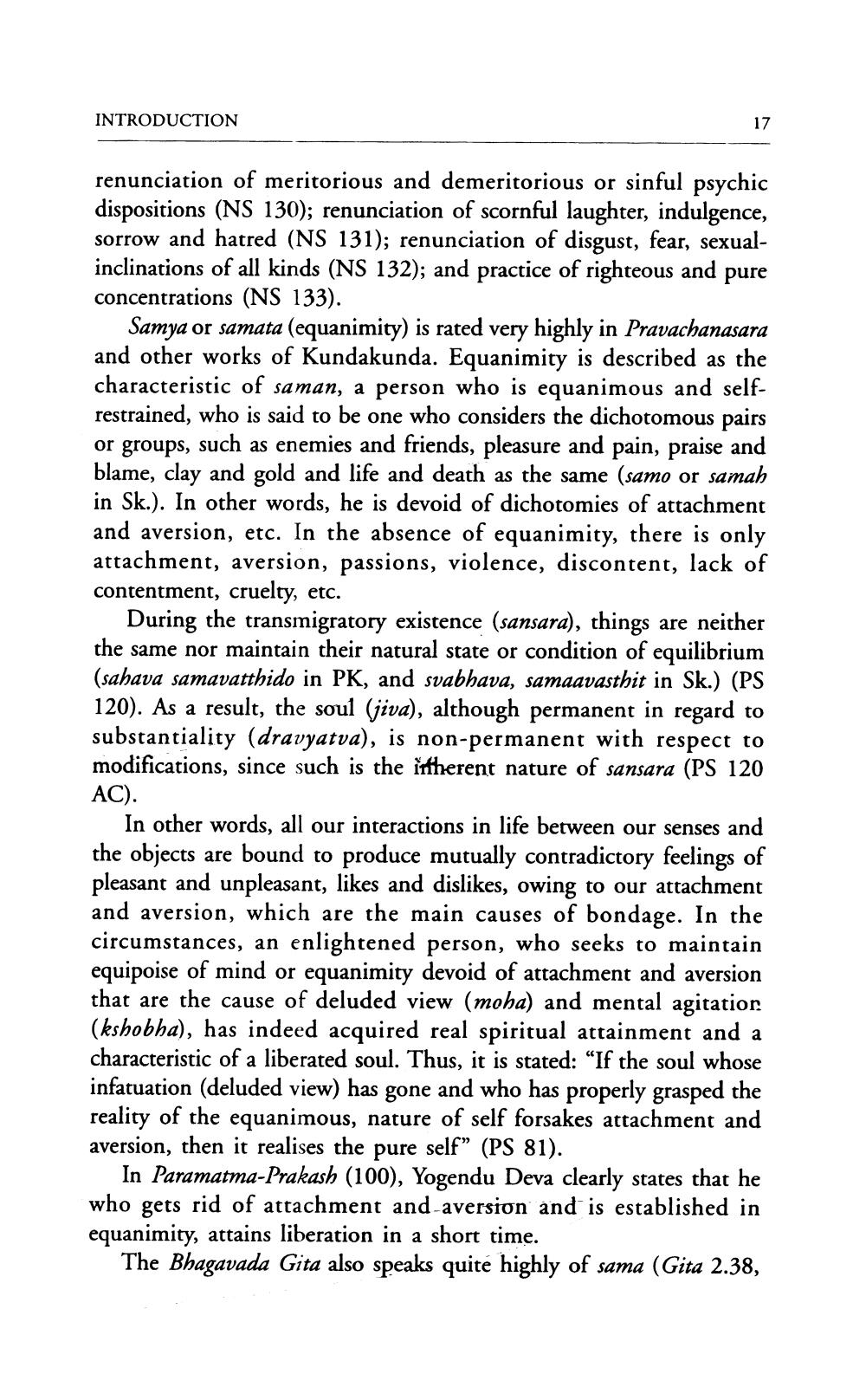________________
INTRODUCTION
renunciation of meritorious and demeritorious or sinful psychic dispositions (NS 130); renunciation of scornful laughter, indulgence, sorrow and hatred (NS 131); renunciation of disgust, fear, sexualinclinations of all kinds (NS 132); and practice of righteous and pure concentrations (NS 133).
Samya or samata (equanimity) is rated very highly in Pravachanasara and other works of Kundakunda. Equanimity is described as the characteristic of saman, a person who is equanimous and selfrestrained, who is said to be one who considers the dichotomous pairs or groups, such as enemies and friends, pleasure and pain, praise and blame, clay and gold and life and death as the same (samo or samah in Sk.). In other words, he is devoid of dichotomies of attachment and aversion, etc. In the absence of equanimity, there is only attachment, aversion, passions, violence, discontent, lack of contentment, cruelty, etc.
During the transmigratory existence (sansara), things are neither the same nor maintain their natural state or condition of equilibrium (sahava samavatthido in PK, and svabhava, samaavasthit in Sk.) (PS 120). As a result, the soul (jiva), although permanent in regard to substantiality (dravyatva), is non-permanent with respect to modifications, since such is the ittherent nature of sansara (PS 120 AC).
In other words, all our interactions in life between our senses and the objects are bound to produce mutually contradictory feelings of pleasant and unpleasant, likes and dislikes, owing to our attachment and aversion, which are the main causes of bondage. In the circumstances, an enlightened person, who seeks to maintain equipoise of mind or equanimity devoid of attachment and aversion that are the cause of deluded view (moha) and mental agitatior. (kshobha), has indeed acquired real spiritual attainment and a characteristic of a liberated soul. Thus, it is stated: “If the soul whose infatuation (deluded view) has gone and who has properly grasped the reality of the equanimous, nature of self forsakes attachment and aversion, then it realises the pure self” (PS 81).
In Paramatma-Prakash (100), Yogendu Deva clearly states that he who gets rid of attachment and aversion and is established in equanimity, attains liberation in a short time.
The Bhagavada Gita also speaks quite highly of sama (Gita 2.38,




